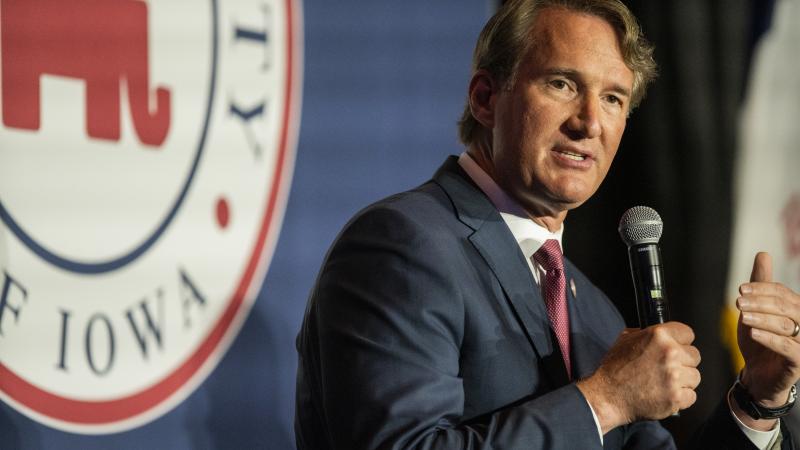Double win for DeSantis: Florida bill reforming 'resign to run' focuses on election integrity
Bill's voter roll maintenance measures come after Florida withdrew from the Electronic Registration Information Center, a controversial multistate voter-data-sharing partnership.
The Florida Legislature passed a bill last week allowing Gov. Ron DeSantis to seek the presidency without resigning from his post — a move widely picked over by state and national political media salivating at the prospect of a Trump-DeSantis duel for the 2024 GOP presidential nomination.
Largely overlooked in the coverage, however, was the measure's suite of election integrity reforms, which include protections against voter disenfranchisement by voter registration organizations, strict new requirements for voter roll maintenance, and enhanced security of vote-by-mail ballots.
Passed towards the end of the legislative session, Florida Senate Bill 7050 reformed the state's "resign to run" requirement to accommodate a potential DeSantis presidential bid in 2024. A similar change occurred when then-Gov. Charlie Crist was a potential GOP vice presidential nominee in 2008.
The Florida governor has been traveling around the U.S. and just completed an international trade trip last week to Japan, South Korea, Israel, and the United Kingdom, but has not yet declared his candidacy or intent to run.
In recent polls including both declared and potential candidates for the 2024 GOP presidential nod, DeSantis has been running a distant second to former President Donald Trump, trailing by anywhere from 13 to 33 points.
Last week, DeSantis disputed reports he intends to announce a presidential bid soon. "If there's any announcements, those will come at the appropriate time," he said. "But if anyone's telling you that somehow they know this or they know that, that's just inaccurate because there's not been any decisions made."
SB 7050 does a lot more, however, than accommodate DeSantis' potential national aspirations. The bill includes, for example, new protections against voter disenfranchisement by partisan third-party voter registration organizations. These provisions would:
- require such organizations to provide receipts to newly registered voters after taking their registration applications;
- ensure that those who handle voter registration applications for organizations are U.S. citizens with no convictions for felony identity theft or election crimes;
- guarantee that the personal information on voter registration applications isn't retained by third parties for other uses;
- increase fines and penalties for organizations that file voter registration applications late and thus rob qualified voters of the opportunity to vote.
The legislation also tightens standards for voter roll maintenance with provisions that would:
- require county election supervisors to check annually whether voters are registered at an address that isn't a legal residential address;
- require the removal of deceased voters from voter rolls within seven days;
- require supervisors of elections to check with clerks of court to determine if any voters were convicted of a felony in the prior week;
- allow supervisors of elections to obtain driver's license data to verify the eligibility of voter registration applicants.
The new list maintenance standards come after Florida recently joined Missouri and West Virginia as the latest red states to withdraw from the Electronic Registration Information Center (ERIC), a multi-state data-sharing partnership that facilitates voter registration and maintenance of voter rolls.
Florida Secretary of State Cord Byrd explained in March that the state was leaving ERIC after the organization refused to "protect the personal information of Florida's citizens."
ERIC Executive Director Shane Hamlin said in an open letter that the organization's member states govern ERIC and stressed the security of voter data maintained by ERIC.
The Florida election integrity bill seeks to enhance the security of voting by mail with new rules that:
- require that election workers verifying voter signatures on vote-by-mail ballots be trained in signature matching;
- require that vote-by-mail envelopes be clearly marked "Do Not Forward";
- require that vote-by-mail ballots cast by people who are under eligibility review be handled as provisional ballots that must be individually reviewed by the county canvassing board;
- allow supervisors of elections to alert the Florida Department of State's Office of Election Crimes and Security to illegal voting and fraudulent registrations;
- direct that envelopes with two or more vote-by-mail ballots are not to be counted.
Initially, the bill contained a section that would make it a third-degree felony to intimidate election workers in an effort to interfere with their official duties. After concerns were raised about that provision possibly infringing on free speech, however, it was stricken from the final bill.
Democratic state Sen. Geraldine Thompson claimed the election integrity law amounts to voter suppression reminiscent of the Jim Crow era.
"It is suppression, just like poll taxes," she said. "That was suppression. Just like violence against people who wanted to vote was suppression. Just like intimidation when you had the Ku Klux Klan march through certain communities was suppression. So I see different characters but the same objective, and that's to make sure that only certain people vote."
Republican state Sen. Danny Burgess, however, rejected such claims.
"This bill does not and will not hinder anyone's right to vote," he said, "nor would I ever subscribe my name to something that could even remotely be concluded to be voter suppression. There is nothing in this bill that makes it harder for a lawfully registered voter to cast their ballot."
















